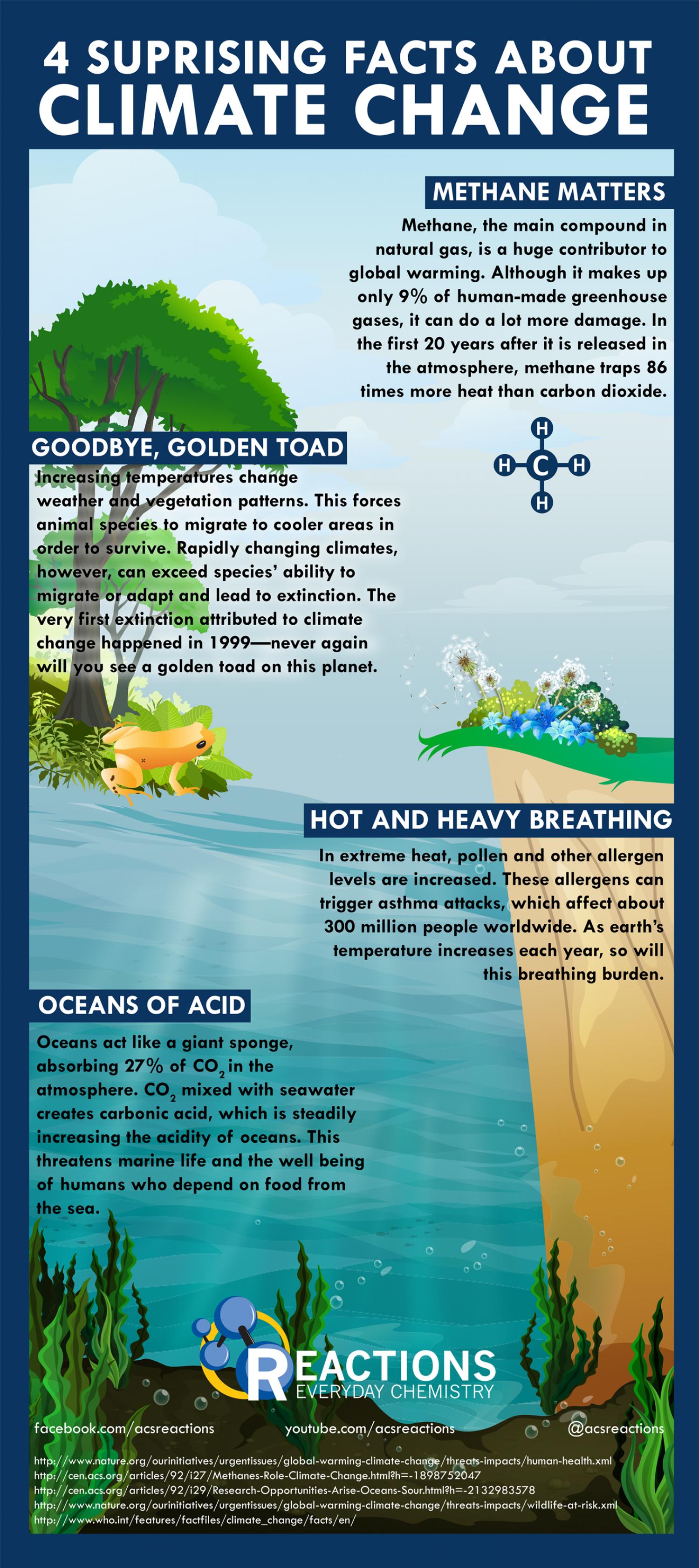
Recently, the World Meteorological Organization released their State of Global Climate in 2020 report. This report provides comprehensive information about climate change in 2021 and includes data on climate indicators as well as the effects of climate on the world. It also explains the roles and responsibilities that organizations have in managing climate change.
According to the report, the planet will continue to warm rapidly through the 21st-century, with the average global temperature expected to rise by 1.5 - 2 degrees celsius. There is a high chance that coral reefs will become completely covered by sea-level rise if these warming rates continue. Additionally, increasing temperatures will likely result in more heat waves or droughts.

This report is one in a series prepared by WMO. These reports offer authoritative information on climate to policymakers. These reports are based six international data sets and draw on the expertise of a global network of experts.
Many regions around the globe experienced extreme weather events during the year. The effects of these events on human lives and communities were immense. They caused economic losses of hundreds of billions of US dollars, as well as the deaths of thousands of people. Some countries were more affected than others, like Haiti and Pakistan.
The report contained some hope despite the terrible effects of extreme events. Most Parties that submitted an updated Nationally Determined Contributions (NDCs) strengthened their commitment to limit greenhouse gas emissions to a level below that of pre-industrial times. However, the current commitments will still result in an increase of 13.7% by 2030.
Overall, the WMO Report highlights the need for systematic action. According to the WMO report, greenhouse gas emission could be cut by 68% by 2050 if countries can meet their long term targets.

This report focuses on the effects of climate change on ecosystems as well as human health. If global temperatures continue to rise at 2 degrees Celsius coral reefs will experience a decrease of over 99% in their coverage. They will also experience pluvial flooding, which is extreme rainfall-caused floods.
Other impacts aren't directly related to climate change. For example, many cities are still reliant on fossil fuel subsidies, which amount to $11 million per minute. But the IPCC has found that mismanagement of water sources may lead to increased rainfall and intensification of extreme rainfall.
UN Climate Change Report aims to assess how countries intend to transition to net zero emissions by mid-century. 24 Parties filed new NDCs over the last year. While most parties have raised their ambitions, many still have not created a plan to meet their long-term commitments.
The report is a powerful reminder that the world must take immediate action to reduce carbon emissions. However, there are many uncertainties about the future of the global climate. There are also several net-zero targets that remain undefined.
FAQ
What is the current state of international efforts to address climate change?
The international effort to tackle climate change has reached a new level of unity and momentum. Countries all around the globe are increasingly joining forces to find solutions to climate change.
The Paris Agreement has energized collective action at the global level and is a framework that allows individual countries to set voluntary emissions reduction targets. The UN Framework Convention on Climate Change and (UNFCCC) provides political guidance, as well as piloting initiatives such a carbon market.
Other regions are seeing progress. The European Green Deal is a comprehensive legislation package that seeks to create a European economy with sustainability as its core. Countries on the African continent also have committed to The African Renewable Energy Initiative, which aims increase Africa's participation in global renewable energy production.
Action can also be seen across industries and sectors. Cities are moving towards sustainable public transport, while the whole society is adopting more sustainable lifestyles. Companies are developing technologies to reduce emissions, while investors shift their capital away fossil fuels in favor of renewables.
The OECD committee has adopted common standards to report national actions on climate change by rich countries. This is known as the 2021 Guidelines.
These efforts signify a new level of importance for climate action. If there is any hope of meeting the science-based Climate Goals, all stakeholders (governments, civil societies, and private sectors) must continue to build on their momentum and push for greater ambition & progress.
How can the world move towards a more sustainable future in light of the challenges posed by climate change?
Sustainability means being able to provide for current needs and not compromise future generations' ability. In light of the increasing challenges posed by climate change, there is an urgent need for drastic action to eliminate our dependence on finite resources and shift towards a more sustainable approach to how we use them.
We must reexamine how we consume and produce energy, as well as our dependency on natural resources like fossil fuels, if we are to make a transition towards a more sustainable future. We must find new technologies, renewable resources of energy and systems that reduce harmful emissions while still meeting our daily needs.
A holistic approach to sustainability is also essential. This involves considering all aspects of production from materials used, waste management and reuse strategies to energy use in transportation and industry. There are many solutions that can be found, such as the utilization of renewable energy, like solar, winds, and hydropower, better waste management, higher efficiency in agriculture, improved transportation networks, green building regulations and sustainable urban planning.
This goal requires behavioral changes from individuals in all sectors of society. Education programs are necessary to help people understand the climate change issues and how they can make a positive contribution towards a more sustainable world.
Collaboration between government leaders, industry leaders, as well as citizens is the only way to make significant progress toward creating a more sustainable future for our children.
What impact does climate change have on biodiversity and ecosystems
Climate change has a range of impacts on biodiversity and ecosystems. Today's issues that impact wildlife and ecosystems include rising temperatures, increased sea levels and extreme weather events.
These changes can result in shifts of habitat areas, disrupting food chains or affecting population numbers or distributions. With potentially devastating consequences for biodiversity, ecosystems and their functioning, these shifts in climate conditions could cause significant impacts. Changes in the hydrological cycles can also have an impact on water availability for species that live in aquatic environments.
Climate changes can lead to higher temperatures and more frequent extremes (such as droughts) which put more stress on already fragile systems, like coral reefs or tropical forests. It is estimated that up to 30% of animal species could become extinct due to climate change by 2050, which would spark a cascade of further losses within ecological communities.
Climate change is an enormous threat to biodiversity and to human societies which depend on functioning ecosystems. The best way to minimize its impact is to work at every level to reduce global warming trends. Future damages can be avoided with prudent management practices.
What are the effects of climate change on the environment and society?
Climate Change has broad effects on both the environment and society. Rising global temperatures, extreme weather events, sea level rise, and decreased air quality are just some of the environmental impacts of climate change. These changes can have grave consequences for human population, increasing instability and inflicting insect-borne disease and poverty on a large scale, as well as altering migration patterns and destroying important habitats.
Already, climate disruption is already having profound impacts on the environment and society around the world. As global temperatures rise, it is likely that this trend will continue in the near future.
One of the most prevalent effects of climate changes worldwide is the rise of ocean levels as a result of melting ice cap. This results in shoreline erosion on many coasts, as well as increased flooding risk for coastal communities. In many countries, saltwater intrusion can also occur, affecting freshwater supplies in the coastal areas.
Many countries are experiencing extreme weather events, such as droughts or heatwaves as a result climate change. These events cause massive destruction to homes, businesses, and sometimes even wipe out entire towns. Extreme storms can also cause flooding and landslides, which increase the damage to infrastructure like roads and railways.
Also, wildfires due to climate change are occurring more often than ever. These fires can cause severe damage to habitats and the lives of people living close by.
These drastic changes often lead to displacement or refugee crises. People move out of their homes involuntarily or voluntarily when their communities become unsafe or uninhabitable due to the altered climate.
The increase in aridity causes dust storms to become more frequent, which makes people suffering from asthma and other respiratory ailments such as asthma even more vulnerable. Furthermore, pest infestations are predicted to rise in tandem with warmer temperatures. This phenomenon is known as the 'greenhousebug'. Global food insecurity will continue to grow as fewer crops have lower nutritional qualities. This could potentially lead to more hardships for people already struggling to make ends work.
What role does the energy sector play in climate change? How can this be addressed?
The vital role played by the energy sector in climate changes is huge. The burning of fossil fuels is a primary source of global warming, caused by releasing carbon dioxide into the atmosphere, trapping heat, and leading to an increase in average temperatures on Earth.
This is why energy sources need to shift away from carbon-emitting resources like coal and natural gas and instead switch towards renewable energy sources such as solar, wind and geothermal. This shift can be made possible by both government policy and incentives as well investments in innovative technology like hydrogen-fuel cells. Businesses and households will be able to reduce their carbon emissions and lower their electricity bills if they invest in infrastructure that supports renewable sources.
Other methods include transitioning away from polluting transportation options like petroleum-fueled cars and moving towards electric vehicles or public transport. Governments have great power to lead societies' transitions away from oil-based infrastructures by supporting research into battery technologies and incentivizing consumers to invest in cleaner modes of transportation.
To reduce carbon footprints, companies should adopt green business practices. For example, better insulation in offices and production facilities. This can help drastically reduce operational costs while simultaneously improving environmental performance metrics.
These initiatives must be promoted not only at the company but also at government level in order to be effective. By increasing taxes on pollutants, individuals are encouraged to abandon harmful practices. However, this will not force them to outcompete polluters financially. In addition to creating a sustainable market for products with low carbon content, vouchers and subsidies for these products will be provided to encourage continued sustainability efforts. In conclusion, tackling climate change requires a massive effort from both private industry and private citizens alike; switching to clean energy sources and adopting green practices are key aspects of fighting global warming which will positively affect generations now and are yet to come.
Statistics
- features Earth's average surface temperature in 2022 tied with 2015 as the fifth warmest on record, according to an analysis by NASA. (climate.nasa.gov)
- According to the 2014 report on Climate Change Impacts, Adaptation, and Vulnerability (page 8) from the United Nations Intergovernmental Panel on Climate Change, governments at various levels are also getting better at adaptation. (climate.nasa.gov)
- The 10 countries with the largest emissions contribute 68 percent. (un.org)
- The 100 least-emitting countries generate 3 per cent of total emissions. (un.org)
- Indigenous peoples and local communities receive less than 1% of all climate funding despite scoring wins for people and nature Africa's broken food markets must be fixed to tackle hunger (climatechangenews.com)
External Links
How To
How to incorporate sustainable practices into your daily life to combat climate change
It is possible to integrate sustainable practices into every day life by reducing the amount of resources you consume, such as food and energy. Instead of buying new items every day or week, try shopping secondhand or borrowing items from friends and family members. Also, vegetarian meals can be a great way to cut down on methane from livestock production. For energy conservation, remember to turn off the lights whenever possible when leaving a space.
One way to combat climate change, is to decrease emissions from transportation sources like planes and cars by carpooling. In place of traditional fossil fuels, we can choose to use renewable power sources such solar panels to generate electricity at our homes. It is crucial to support measures at the policy level that encourage clean air regulations in order to make climate change mitigation work. Also, engaging with other citizens on issues such plastic pollution reduction and deforestation will help to create more conscious citizens that will take action.